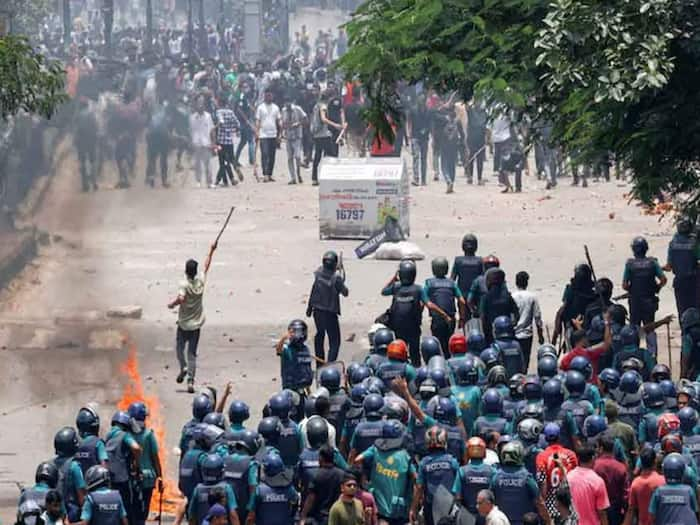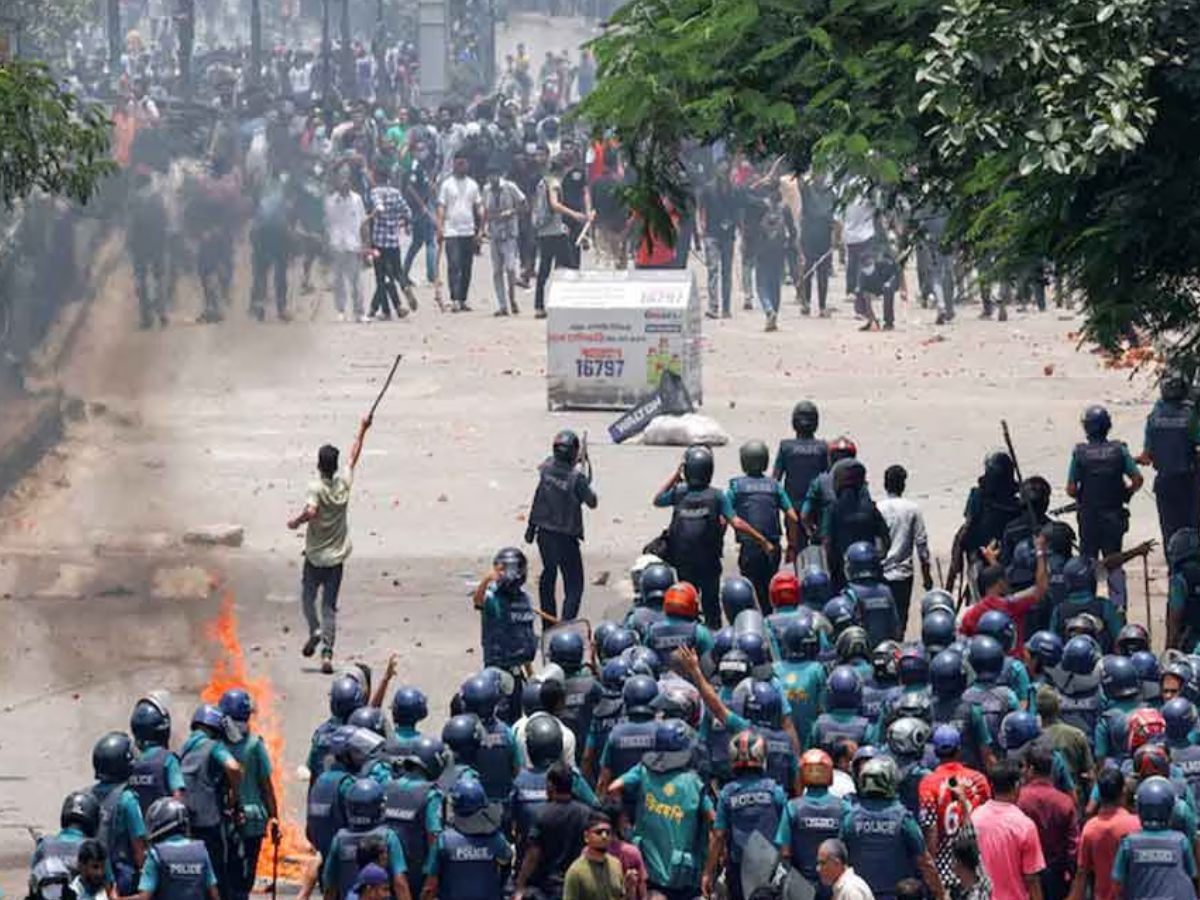Prime Minister Hasina said that those engaging in sabotage across Bangladesh in the name of protest are not students but terrorists and asked people to suppress them with a firm hand.

Dhaka: As the protests in Bangladesh continue to intensify, at least ninety-one people were killed and hundreds injured on Sunday in fierce clashes between protestors and the ruling Awami League supporters in the Bangla state. The protests in Bangladesh started over government jobs quota has now somehow moved towards demanding the resignation of Prime Minister Sheikh Hasina.
The fresh round of clashes erupted days after over 200 people were killed in violent clashes between the police and mostly student protesters demanding an end to the controversial quota system that reserved 30 per cent of government jobs for relatives of veterans who fought in Bangladesh’s War of Independence in 1971.
The clashes broke out this morning when protesters attending a non-cooperation programme to demand the government’s resignation faced opposition from the supporters of the Awami League, Chhatra League, and Jubo League activists.
“At least 18 people were killed and numerous others injured in a series of deadly clashes that broke out in several parts of the country centring the non-cooperation movement by the banner of Anti-Discrimination Student Movement,” the Dhaka Tribune newspaper reported. The Home Ministry decided to impose an indefinite countrywide curfew from 6 PM on Sunday.
Prime Minister Hasina Appeals To Citizens
Meanwhile, Prime Minister Hasina said that those engaging in sabotage across Bangladesh in the name of protest are not students but terrorists and asked people to suppress them with a firm hand. Hasina called a meeting of the National Committee on Security Affairs at Ganabhaban, the paper reported citing sources from the Prime Minister’s Office (PMO). Those engaging in sabotage in the name of protest across the country are not students but terrorists, she said.
“I appeal to the countrymen to suppress these terrorists with a firm hand,” she said.
The meeting was attended by the chiefs of the Army, Navy, Air Force, police, RAB, BGB, and other top security officers.
The meeting came as renewed violence spread to several parts of the country. In Rangpur, four Awami League supporters were killed and over 100 people injured while two people were killed each in Bogra and Magura, where a Chhatra Dal leader was among the dead, the paper added.
In Sirajganj, at least four people were killed and many injured in a series of clashes between protesters, Awami League activists and police, it said.
Risings Protests In Bangladesh
In Comilla, a Jubo Dal activist was killed and 15 people, including three children, were injured during clashes between Awami League and protesters, the paper said. Most of the shops and malls in Dhaka were closed now amid the protest. Hundreds of students and professionals had gathered at Dhaka’s Shahbagh, blocking traffic on all sides.
The protesters under the banner of the Anti-Discrimination Students Movement chanted slogans calling for Prime Minister Hasina’s resignation and justice for those killed in the recent violence surrounding the quota reform protests, Bdnews24 news portal reported.
Protesters also gathered at the Science Lab intersection of the capital on the first day of the non-cooperation movement. They chanted anti-government slogans.
According to the Daily Star newspaper, several vehicles at Bangabandhu Sheikh Mujib Medical University (BSMMU) were torched on Sunday by unidentified people. People carrying sticks were seen vandalising private cars, ambulances, motorcycles, and buses on the hospital premises, triggering fear among the patients, their attendants, doctors and staff, the paper said.
Protesters have dismissed Hasina’s invitation for dialogue aimed at quelling escalating violence and consolidated their demands into a unified call for the government’s resignation.
Protest coordinators have called on students from schools, colleges, universities, private universities, and madrasas, as well as workers, professionals, political activists and other public members to participate in the protests.
(With inputs from agencies)

